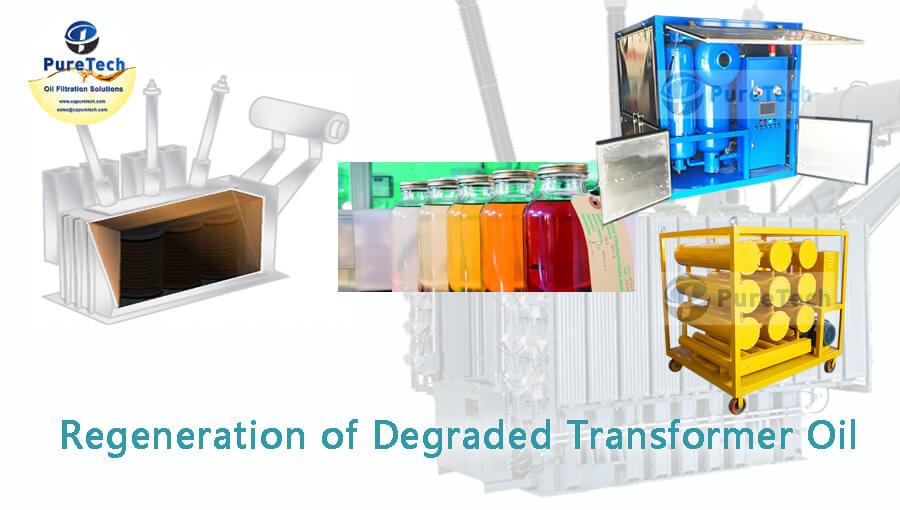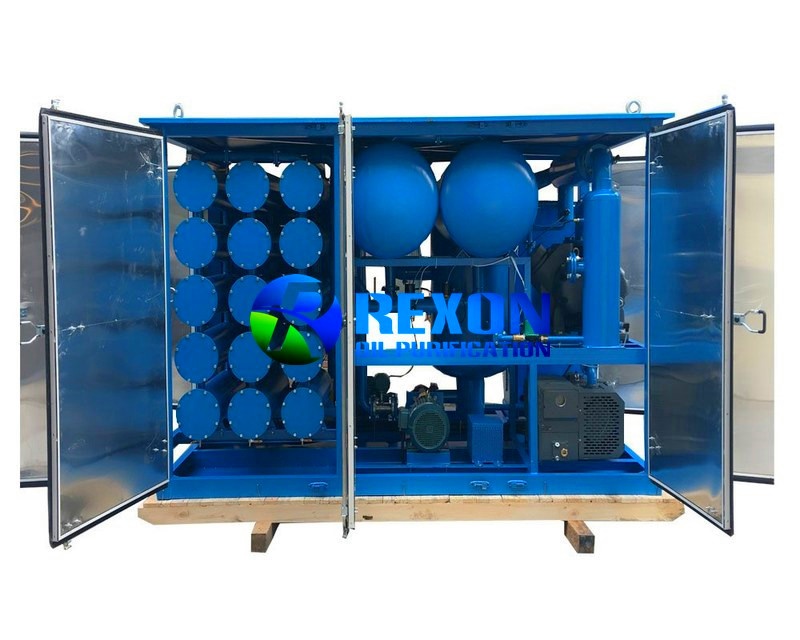Why Transformer Oil Regeneration Is Vital for Performance
Why Transformer Oil Regeneration Is Vital for Performance
Blog Article
How Regenerated Transformer Oil Extends Transformer Life Expectancy
The function of transformer oil is crucial in guaranteeing the integrity and durability of transformers, working as both an insulator and coolant. Restored transformer oil uses a compelling option to boost these features by properly getting rid of damaging pollutants that endanger performance. Through a meticulous regeneration process, the oil's dielectric residential properties and thermal stability can be restored, leading to considerable renovations in operational effectiveness. Recognizing the intricacies of this process and its more comprehensive ramifications for transformer maintenance discloses a path to not only prolong life-span however additionally optimize prices in power monitoring systems.
Relevance of Transformer Oil
Transformer oil plays a critical role in the effective procedure of electrical transformers. It mainly serves as a shielding tool, making sure and stopping electric discharges that components operate safely under high voltage conditions. The oil's dielectric homes are basic to maintaining the integrity of the transformer, as they lessen the threat of failures that could cause expensive downtimes or catastrophic incidents.
In enhancement to its shielding capacities, transformer oil also operates as a coolant. As transformers run, they produce warm that should be dissipated to avoid overheating and subsequent damages. The oil flows within the transformer, moving and soaking up heat far from important components, therefore maintaining optimal operating temperature levels.
Moreover, transformer oil functions as an obstacle against dampness and contaminants, which can endanger the performance and durability of the transformer. Its chemical homes aid in counteracting acids and other by-products that may develop over time, adding to the overall health and wellness of the electric system.
Benefits of Regenerated Oil

Additionally, regenerated transformer oil has a reduced degree of pollutants, including particles and contaminants that can degrade efficiency. This pureness not only boosts the oil's thermal conductivity but additionally expands the operational lifespan of transformers by decreasing overheating risks. The improved thermal stability of regrowed oil makes certain consistent performance even under high operating temperatures, which is important for maintaining transformer effectiveness.
One more benefit is its environmental impact. Regenerated oil advertises sustainability by decreasing waste and the demand for new oil manufacturing, thus lowering the carbon impact connected with transformer upkeep. Regenerated Transformer Oil. Additionally, the durability of restored oil translates to lower maintenance costs gradually, as fewer oil changes and less constant equipment downtime are called for.
Process of Oil Regrowth
The regeneration of transformer oil includes a methodical procedure made to recover the oil's initial homes and enhance its performance. This process usually starts with the elimination of the utilized oil from the transformer, which is then based on numerous purification strategies.
The primary step in the regeneration procedure is the filtering, where solid pollutants such as steel, sludge, and dust particles are eliminated. This is usually followed by vacuum distillation, which aids to remove moisture and unstable compounds, thereby enhancing the oil's dielectric strength.

Influence On Transformer Efficiency
Recovering the buildings of regenerated transformer oil dramatically affects the general efficiency of transformers. Enhanced dielectric strength is among the most vital advantages, as it permits far better insulation and minimizes the chance of electric malfunction. This improvement results in a more steady operation under high voltage conditions, inevitably bring about enhanced effectiveness.
Furthermore, the removal of pollutants and degradation products throughout the regeneration process reduces the risk of getting too hot. Cleaner oil promotes far better warmth dissipation, which is essential for maintaining ideal operating temperature levels. Therefore, the thermal efficiency of the transformer is enhanced, permitting higher lots without endangering dependability.
In addition, the chemical stability of regenerated oil guarantees extended functional life. It stands up to oxidation and destruction, reducing the frequency of maintenance interventions and oil replacement. This stability not only adds to enhanced performance but likewise lines up with sustainability goals by reducing waste.
Future of Transformer Maintenance
As developments in innovation continue to reshape the landscape of electrical engineering, the future of transformer maintenance is positioned for substantial makeover. The assimilation of clever innovations, such as IoT sensing units and predictive analytics, enables real-time monitoring of transformer health, enhancing the capacity to preemptively resolve concerns prior to they intensify into major failures. This aggressive strategy not just maximizes functional performance however also extends the life-span of transformers.
Additionally, the application of man-made intelligence (AI) in data evaluation permits more accurate mistake discovery and diagnosis. By leveraging artificial intelligence formulas, upkeep teams can determine patterns in operational data that human experts might ignore, resulting in more enlightened decision-making.
In addition, the fostering of environmentally friendly techniques, including using regenerated transformer oil, is set to redefine upkeep protocols. This sustainable approach not just minimizes environmental influence but likewise boosts the total health of the transformer.
Lastly, the change in the direction of automation in upkeep processes is expected to simplify operations, lower downtime, and lower costs. As these advancements remain to advance, the future of transformer maintenance will definitely Reclaimed Transformer Oil end up being more effective, trusted, and lasting, ensuring the stability of crucial electric framework.
Conclusion
The usage of regenerated transformer oil considerably enhances the operational long life of transformers. Inevitably, the fostering of regrowed oil represents a pivotal innovation in transformer upkeep, making sure ideal performance and sustainability in the monitoring of electric infrastructure.
The role of transformer oil is critical in making certain the integrity and durability of transformers, serving as both an insulator and coolant.Transformer oil plays an essential duty in the effective operation of electric transformers. Regrowed oil promotes sustainability by lowering waste and the requirement for new oil manufacturing, thus decreasing the carbon impact associated with transformer upkeep.Bring back the properties of regenerated transformer oil dramatically influences the overall efficiency of transformers.The usage of regenerated transformer oil significantly boosts the operational long life of transformers.
Report this page